Glycation: The hidden cause of skin ageing
As we age, our skin inevitably undergoes changes, from fine lines to wrinkles, loss of elasticity, and an overall dullness.
While many of us are familiar with the impact of sun exposure, genetics, and lifestyle on skin ageing, a lesser-known but equally significant culprit is glycation.
Understanding glycation and how to combat it can unlock new potential in your skincare routine, helping you maintain radiant, youthful skin well into your 50s and 60s.
What is Glycation?

Glycation is a biochemical process where sugar molecules bind to proteins or lipids without the controlling action of an enzyme. This reaction results in the formation of harmful molecules called advanced glycation end products (AGEs).
Collagen and elastin, the proteins responsible for maintaining skin's firmness and elasticity, are particularly susceptible to damage by AGEs. When these proteins become glycated, they lose their ability to function properly, leading to stiffness and the visible signs of ageing such as wrinkles and sagging.
The impact of Glycation on Ageing skin
Glycation primarily affects the skin by damaging collagen and elastin fibers, which are essential for maintaining skin's structure and elasticity. The accumulation of AGEs accelerates the ageing process, resulting in the following visible signs:
Wrinkles and Fine Lines: Glycation causes the skin to become more rigid and less elastic, leading to the formation of wrinkles and fine lines.
Loss of Elasticity: Damaged elastin fibers reduce the skin’s ability to bounce back, causing sagging and a loss of firmness.
Dullness: Glycation can interfere with the skin's natural renewal process, leading to a dull and uneven complexion.
Factors That Accelerate Glycation
Several lifestyle and dietary factors can increase glycation, exacerbating skin aging. High sugar intake is the most significant contributor, as excess glucose in the bloodstream can accelerate the glycation process.
Processed foods, which are often high in refined sugars and unhealthy fats, also promote glycation. Additionally, environmental factors such as pollution and oxidative stress can enhance the formation of AGEs, further damaging the skin.
How to Fight Glycation

While glycation is a natural process, there are several effective strategies to minimize its impact and protect your skin.
-
Diet and Nutrition
Reducing sugar intake is one of the most effective ways to combat glycation. Opt for a diet rich in whole foods, focusing on vegetables, lean proteins, and healthy fats.
Foods high in antioxidants, such as berries, leafy greens, and nuts, can help neutralize free radicals and reduce oxidative stress, which contributes to glycation.
Specific nutrients and foods can also aid in reducing glycation:
Vitamin C: Found in citrus fruits, strawberries, and bell peppers, vitamin C helps to boost collagen production and reduce the damage caused by glycation.
Omega-3 Fatty Acids: Present in fatty fish, flaxseeds, and walnuts, omega-3 fatty acids help maintain skin elasticity and reduce inflammation.
-
Skincare Ingredients
Incorporating certain skincare ingredients into your routine can help combat the effects of glycation and improve skin health.
Bakuchiol: A natural alternative to retinol, bakuchiol helps improve skin texture and reduce the appearance of fine lines without the irritation commonly associated with retinoids. Its antioxidant properties also help combat glycation. You can find Bakuchiol in our best-selling Rose Youth Elixir.
Rosehip Oil: Rich in essential fatty acids and antioxidants, rosehip oil helps repair damaged skin, improves moisture levels, and reduces the appearance of fine lines. Rosehip oil is a hero ingredient in our skin barrier boosting Prebiotic Moisturising cream which transforms the skin from within.
Niacinamide (Vitamin B3): Niacinamide can improve skin elasticity, enhance barrier function, even out skin tone, and diminish dullness, all of which help fight the effects of glycation. Using products with these ingredients can protect and repair the skin from glycation damage, promoting a smoother, more youthful appearance.
You can find Niacinamide in our Hydrating Cleanser which gently cleans the skin but also leaves the skin feeling fresh and soft, instead of dry like many cleansers do after you wash them off.
-
Lifestyle Changes
Adopting healthier lifestyle habits can also significantly reduce glycation and its impact on your skin. Quitting smoking and reducing alcohol consumption are crucial steps, as both habits increase oxidative stress and promote glycation.
Managing stress through activities like yoga, meditation, or regular exercise can also help. Additionally, staying hydrated by drinking plenty of water supports overall skin health.
Glycation is a hidden but powerful contributor to skin ageing. By understanding the process and implementing strategies to combat it, you can maintain healthier, more youthful skin.
From dietary changes and effective skincare ingredients to lifestyle adjustments and professional treatments, there are many ways to fight glycation and achieve radiant skin at any age.
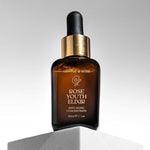
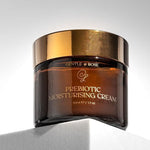
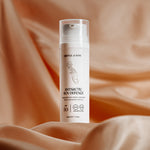
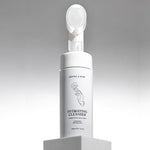
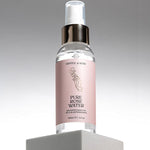


Leave a comment
Please note, comments must be approved before they are published